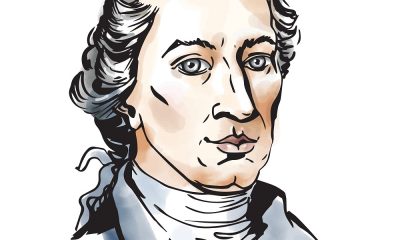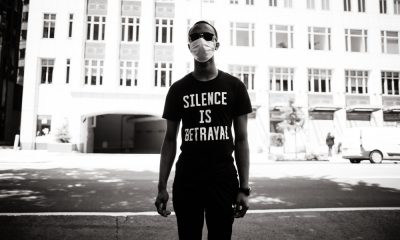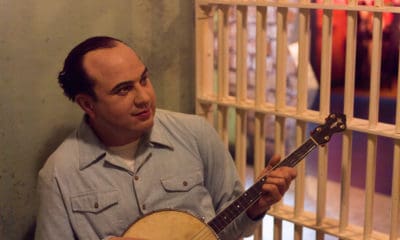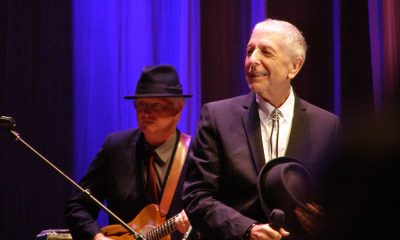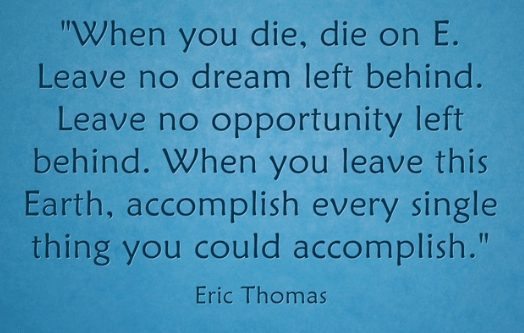25 Carl Rogers Quotes About Psychology and Behavior
Carl Rogers, born in 1902, is an American psychologist who helped establish a humanistic approach to psychology.
Carl Rogers’ theory (1959) aligns closely with Maslow’s, in the sense that he “believed that humans have one basic motive, that is the tendency to self-actualize – i.e., to fulfill one’s potential and achieve the highest level of ‘human beingness’ we can.”
These Carl Rogers quotes speak to his knowledge of life, people, and behavior.
Part of his theory stated that “for a person to “grow”, they need an environment that provides them with genuineness (openness and self-disclosure), acceptance (being seen with unconditional positive regard), and empathy (being listened to and understood).”
He also believed that people are inherently good and that they could achieve what he referred to as becoming a “fully functioning person.”
He identified five characteristics that people needed to achieve in order to reach that goal.
Keep reading to discover just how close you are to being a fully functioning person!
Don’t forget to also check out these Abraham Maslow quotes on motivation and being human.
Check out our most popular quote article, a list of short inspirational quotes for daily inspiration.
Explore our complete collection of motivational quotes here.
Famous Carl Rogers quotes on change, person-centered counseling, and more
1. “The curious paradox is that when I accept myself just as I am, then I can change.” ― Carl R. Rogers
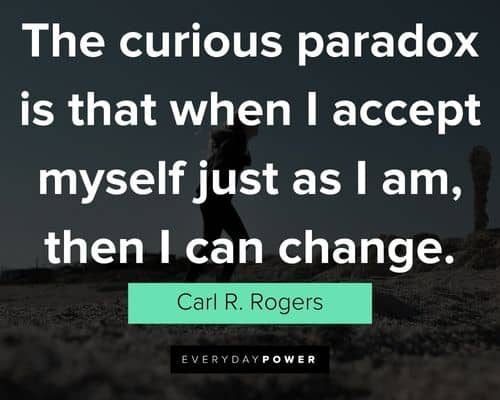
2. “The only person who is educated is the one who has learned how to learn and change.” ― Carl R. Rogers
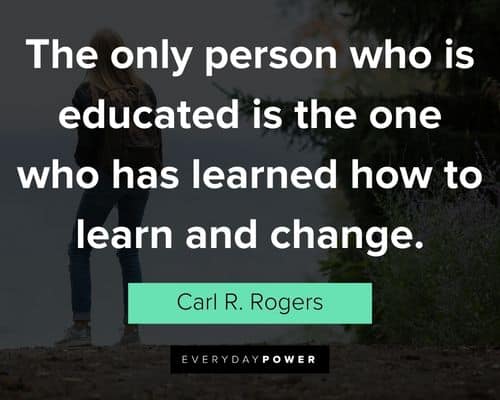
You will also enjoy our article on psychology quotes.
3. “We cannot change, we cannot move away from what we are until we thoroughly accept what we are. Then change seems to come about almost unnoticed.” ― Carl R. Rogers
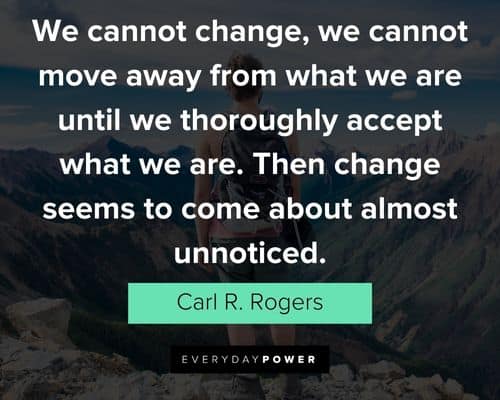
4. “Change threatens, and its possibility creates frightened, angry people. They are found in their purest essence on the extreme right, but in all of us, there is some fear of process, of change.” ― Carl R. Rogers
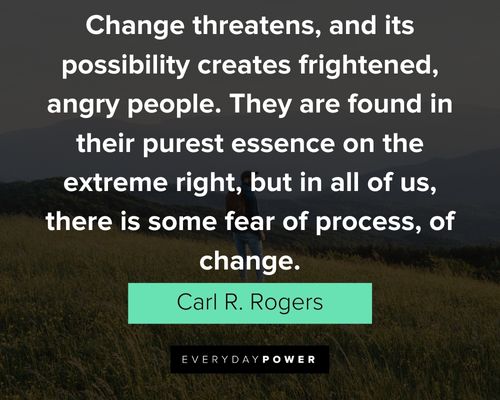
5. “In his behavior, he shows similar changes. He is less frustrated by stress and recovers from stress more quickly. He becomes more mature in his everyday behavior, as this is observed by friends.” ― Carl R. Rogers
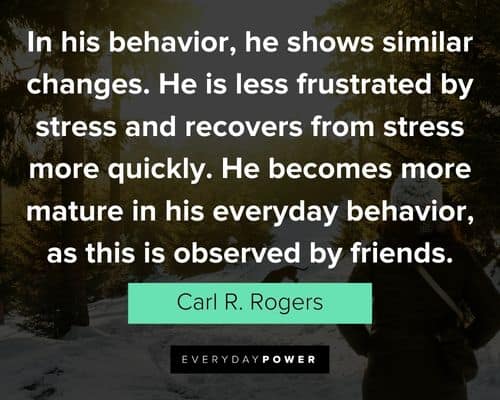
6. “A person is a fluid process, not a fixed and static entity; a flowing river of change, not a block of solid material; a continually changing constellation of potentialities, not a fixed quantity of traits.” ― Carl R. Rogers
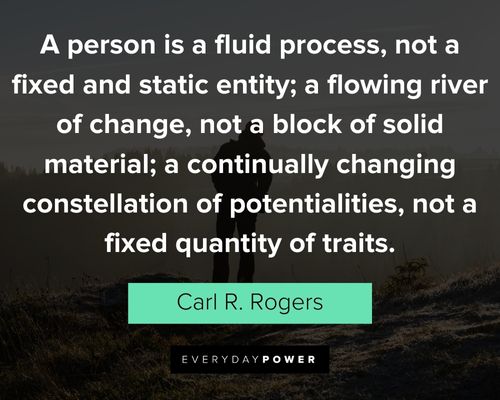
7. “If I let myself really understand another person, I might be changed by that understanding. And we all fear change. So, as I say, it is not an easy thing to permit oneself to understand an individual.” ― Carl R. Rogers
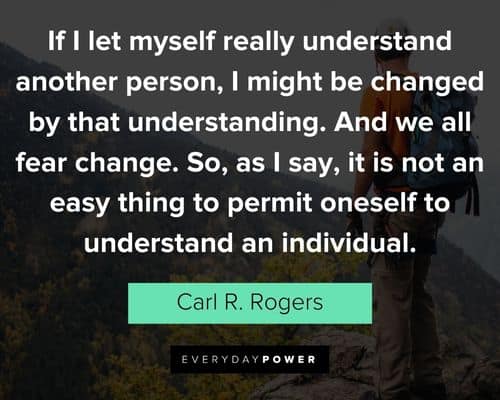
8. “He has a better understanding of himself, becomes more open to his experience, denies or represses less of his experience. He becomes more accepting in his attitudes toward others, seeing others as more similar to himself.” ― Carl R. Rogers
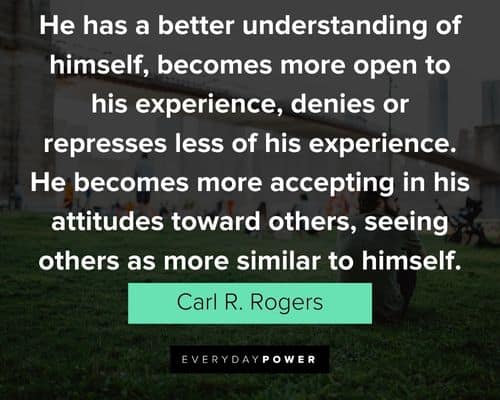
You Might Also Like: Why Carl Rogers’ Personality Theory and 3 Components for Therapy Applies to Your Life
Carl Rogers quotes on behavior and experience
9. “Once an experience is fully in awareness, fully accepted, then it can be coped with effectively, like any other clear reality.” ― Carl R. Rogers
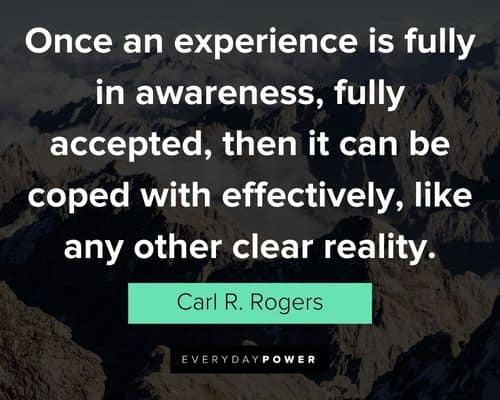
10. “Behavior is basically the goal-directed attempt of the organism to satisfy its needs, as experienced in the field as perceived.” ― Carl R. Rogers
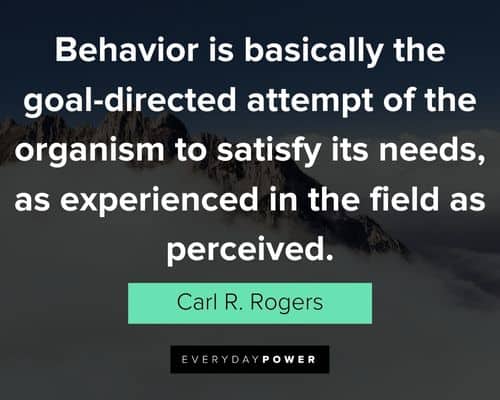
11. “I have come to feel that the only learning which significantly influences behavior is self-discovered, self-appropriated learning.” ― Carl R. Rogers
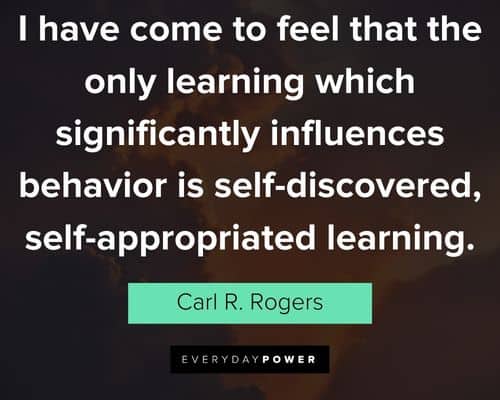
12. “It seems to me that anything that can be taught to another is relatively inconsequential and has little or no significant influence on behavior.” ― Carl R. Rogers
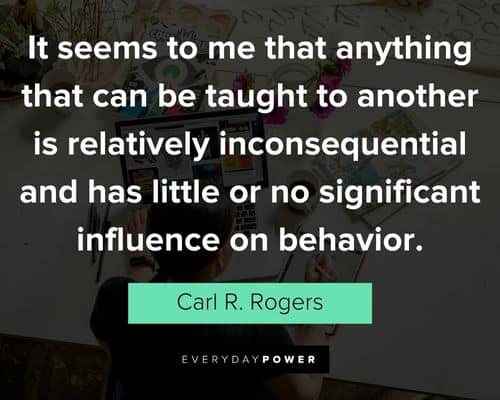
13. “The concept of “cure” is entirely inappropriate, since in most of these disorders we are dealing with learned behavior, not with a disease.” ― Carl R. Rogers
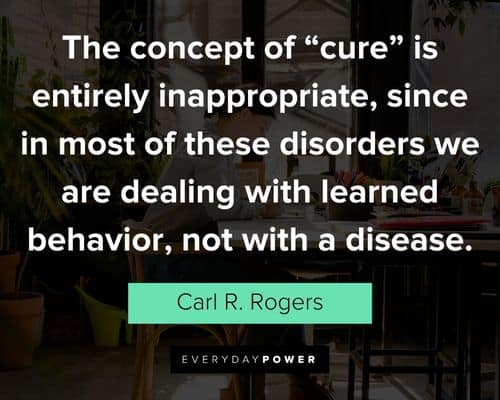
14. “To be responsibly self-directing means that one chooses—and then learns from the consequences. So clients find this a sobering but exciting kind of experience.” ― Carl R. Rogers
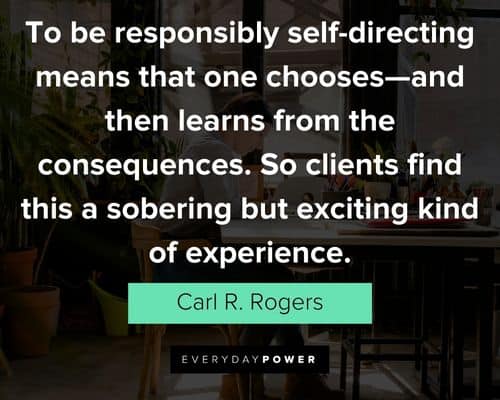
15. “To recognize that “I am the one who chooses” and “I am the one who determines the value of an experience for me” is both an invigorating and a frightening realization.” ― Carl R. Rogers
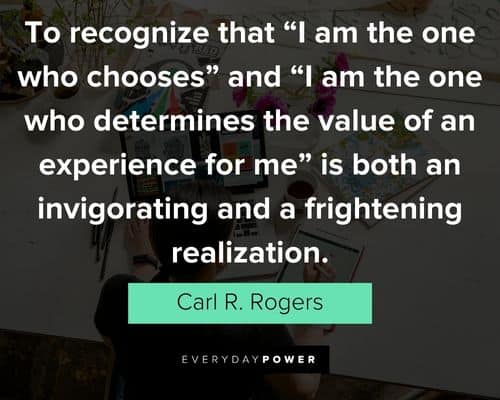
16. “Another way of learning for me is to state my own uncertainties, to try to clarify my puzzlements, and thus get closer to the meaning that my experience actually seems to have.” ― Carl R. Rogers
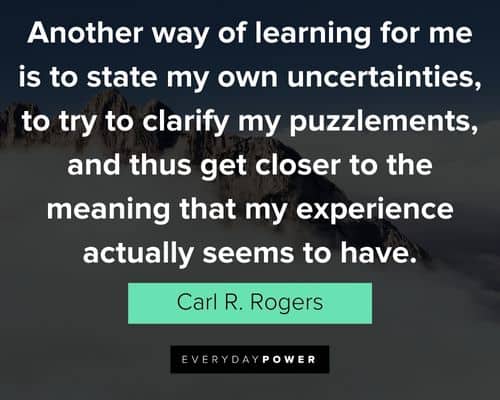
Carl Rogers quotes about feelings, love, and relationships
17. “What is most personal, is most universal.” ― Carl R. Rogers
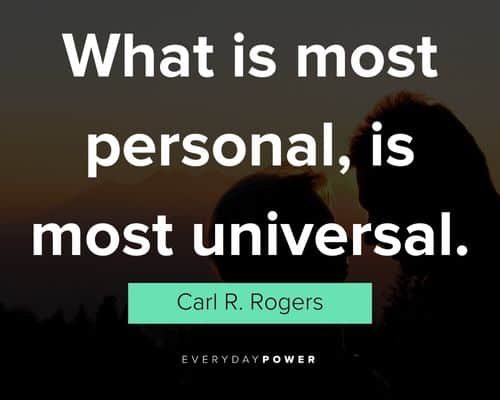
18. “What I am is good enough if I would only be it openly.” ― Carl R. Rogers
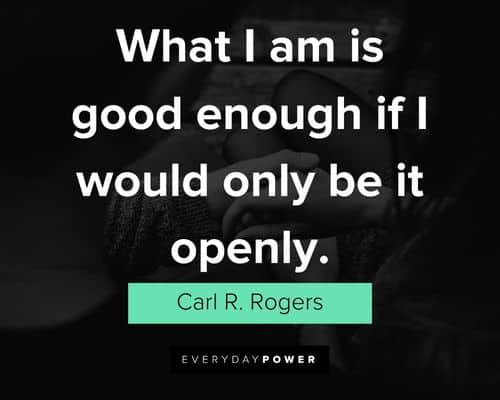
19. “The strongest force in our universe is not overriding power, but love.” ― Carl R. Rogers
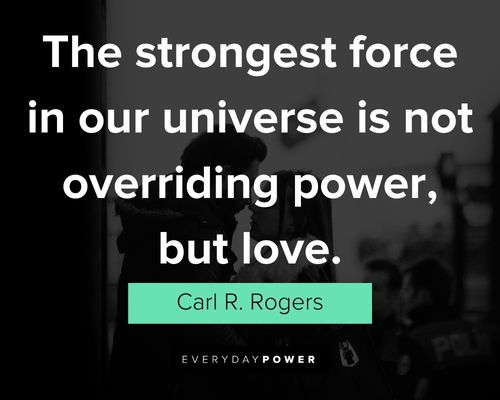
20. “I regret it when I suppress my feelings too long and they burst forth in ways that are distorted or attacking or hurtful.” ― Carl R. Rogers
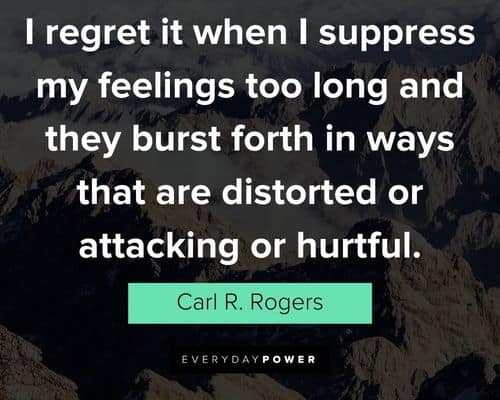
21. “In therapy, the individual learns to recognize and express his feelings as his own feelings, not as a fact about another person.” ― Carl R. Rogers
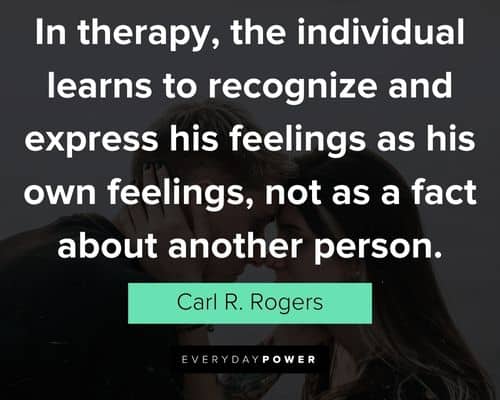
22. “In my relationships with persons, I have found that it does not help, in the long run, to act as though I were something that I am not.” ― Carl R. Rogers
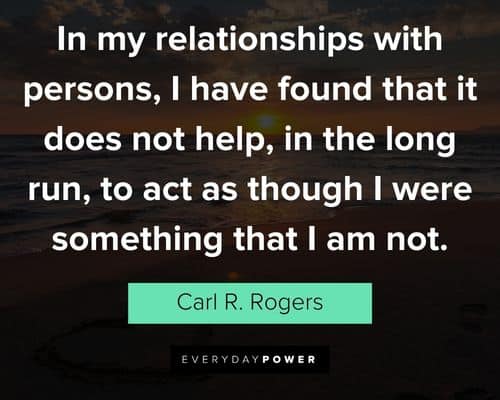
23. “True empathy is always free of any evaluative or diagnostic quality. This comes across to the recipient with some surprise. ‘If I am not being judged, perhaps I am not so evil or abnormal as I have thought.’” ― Carl R. Rogers
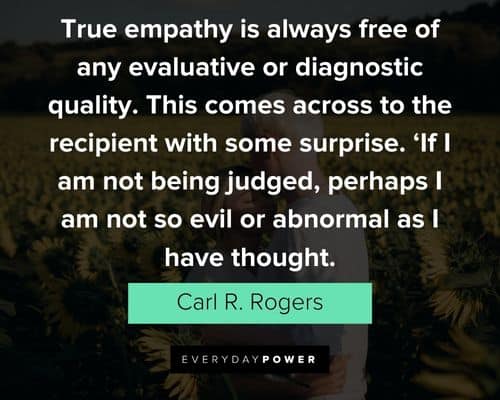
24. “When a person realizes he has been deeply heard, his eyes moisten. I think in some real sense he is weeping for joy. It is as though he were saying, ‘Thank God, somebody heard me. Someone knows what it’s like to be me.’” ― Carl R. Rogers
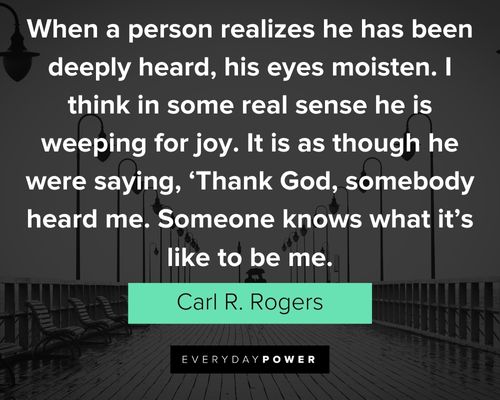
25. “I am centered in the group member who is speaking and am unquestionably much less interested in the details of his quarrel with his wife, or of his difficulties on the job, or his disagreement with what has just been said, than in the meaning these experiences have for him now and the feeling they arouse in him. It is to these meanings and feelings that I try to respond.” ― Carl R. Rogers
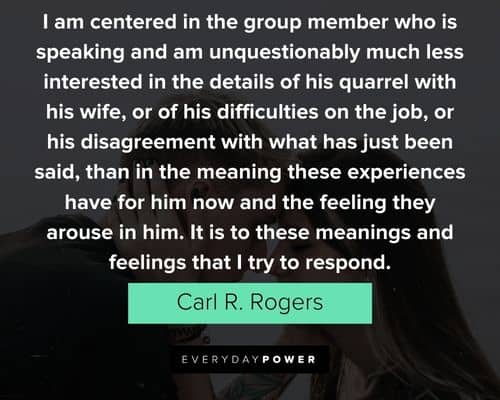
What did you learn from these Carl Rogers quotes?
Carl Rogers believed that the first characteristic of a fully functioning person depended on their willingness to be open to experiences.
This meant accepting that positive and negative emotions had to be acknowledged.
Living in the moment, or existential living is the second characteristic of a fully functioning person.
Dwelling on the past or planning too far into the future takes away from what you are experiencing right now.
The third characteristic he describes is the degree to which a person trusts their feelings and decisions.
Next, he felt that fully functioning people are able to be creative and take risks.
Lastly, living a fulfilled life, one where you are happy and satisfied, yet still seeking challenges would mean you were fully functioning.
Rogers believed that we could all get there, but much like Maslow’s concept of self-actualization felt that most people would not reach this level.
What do you think?
I know there are days where I definitely do not feel like a fully functioning adult!
What’s your biggest takeaway from these Carl Rogers quotes and sayings?
Do you have any other favorite quotes to add?
Let us know in the comment section below.

